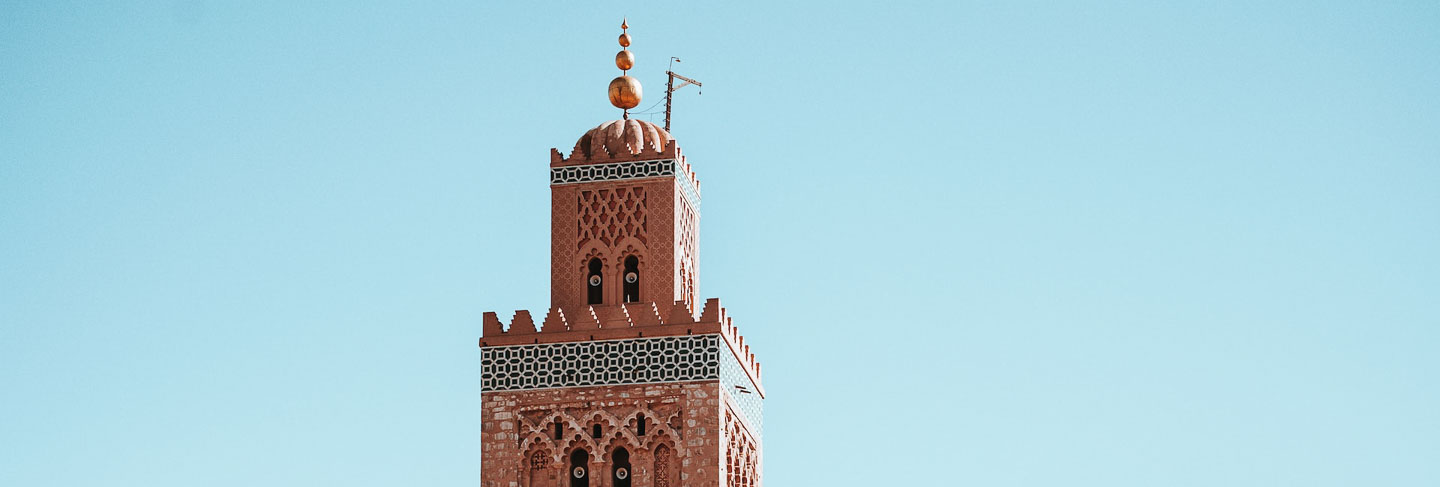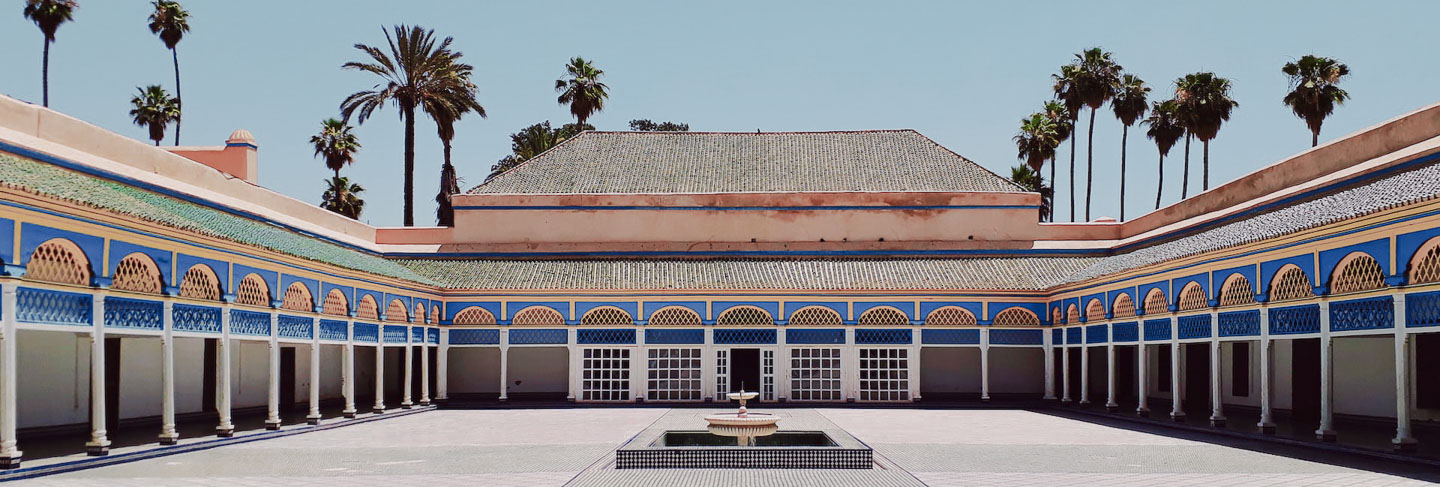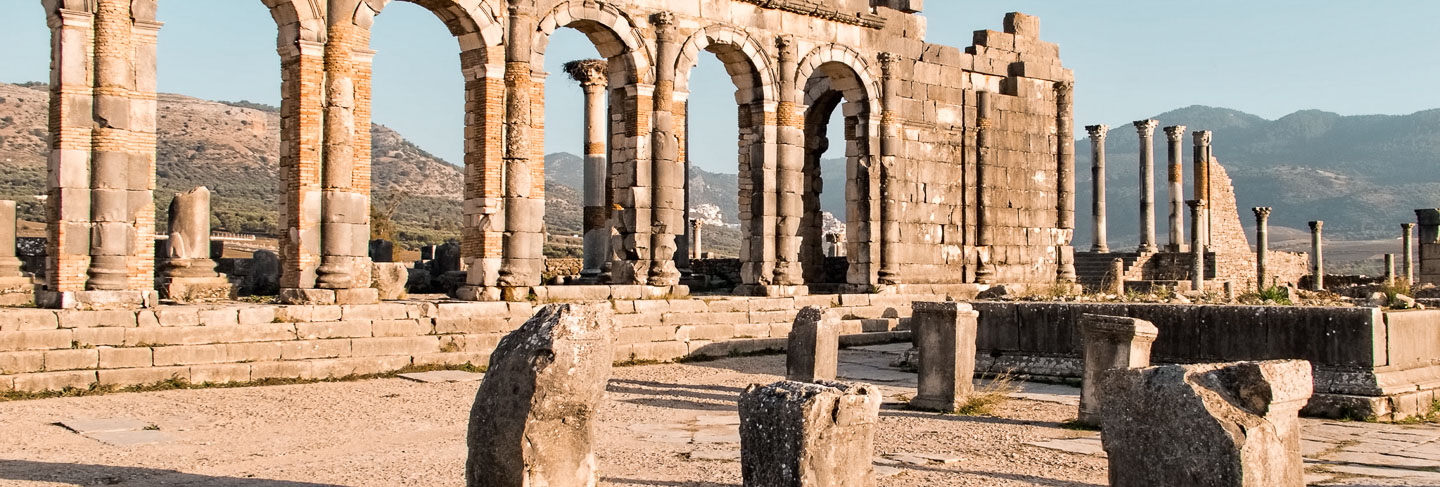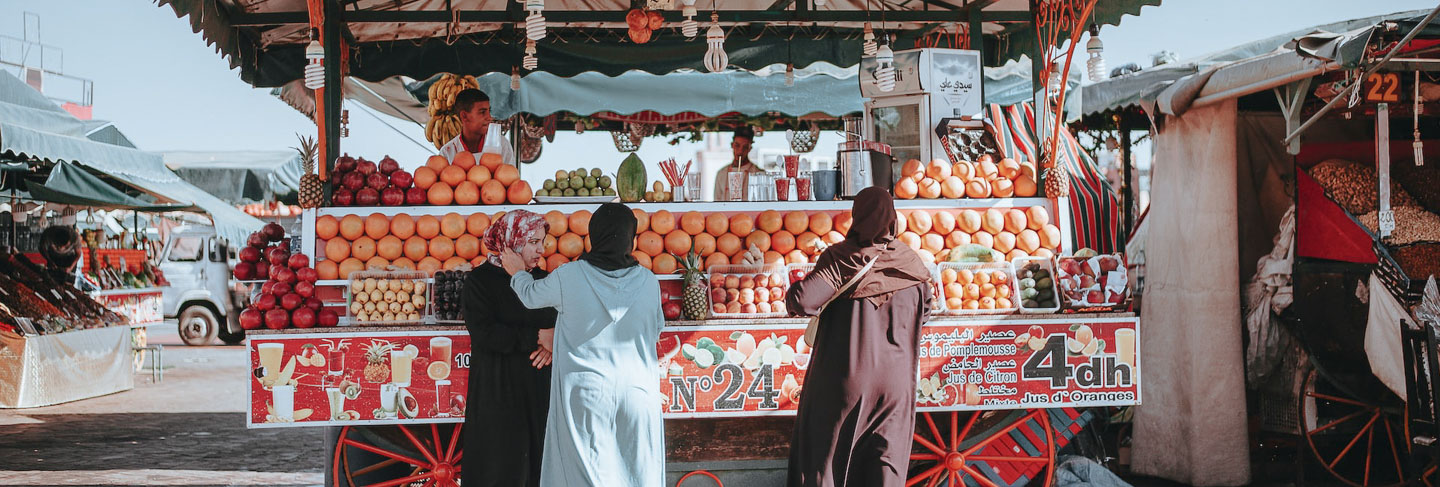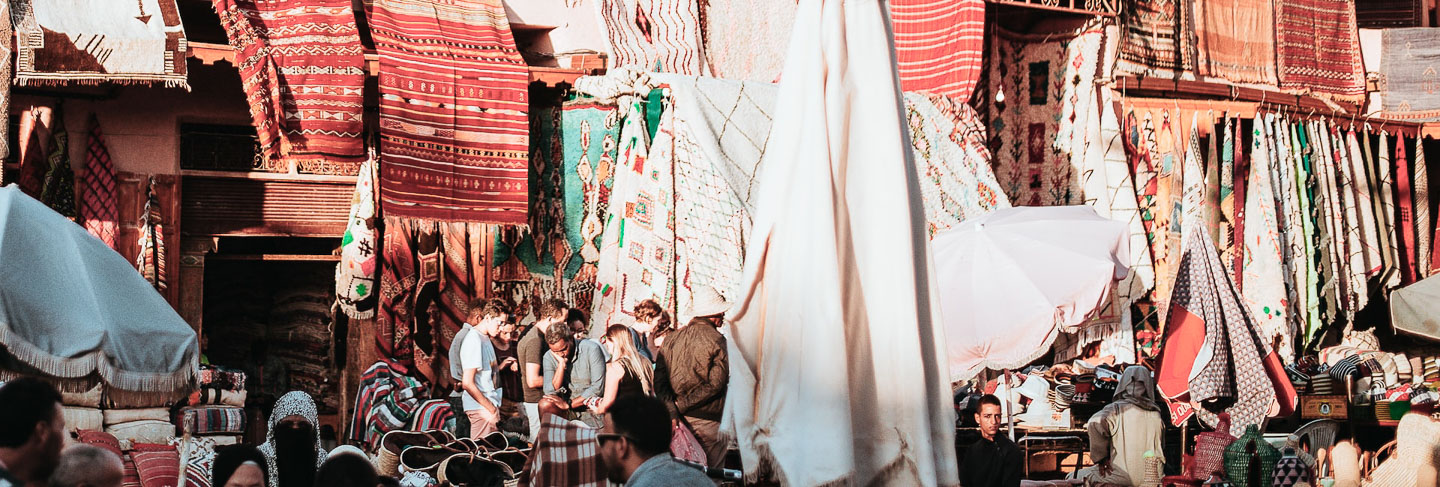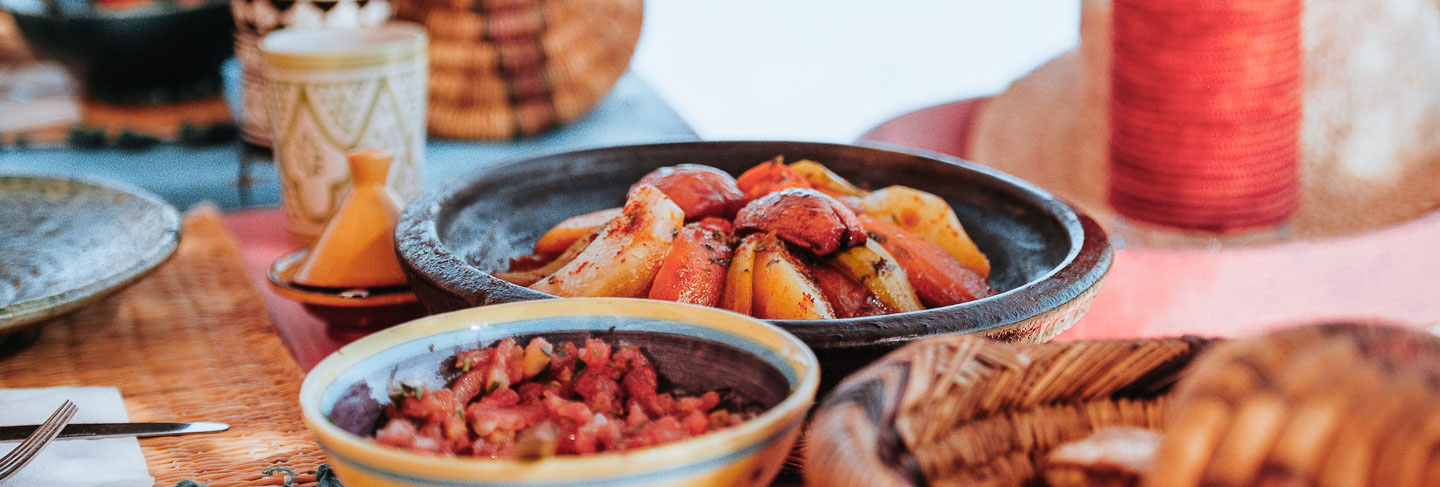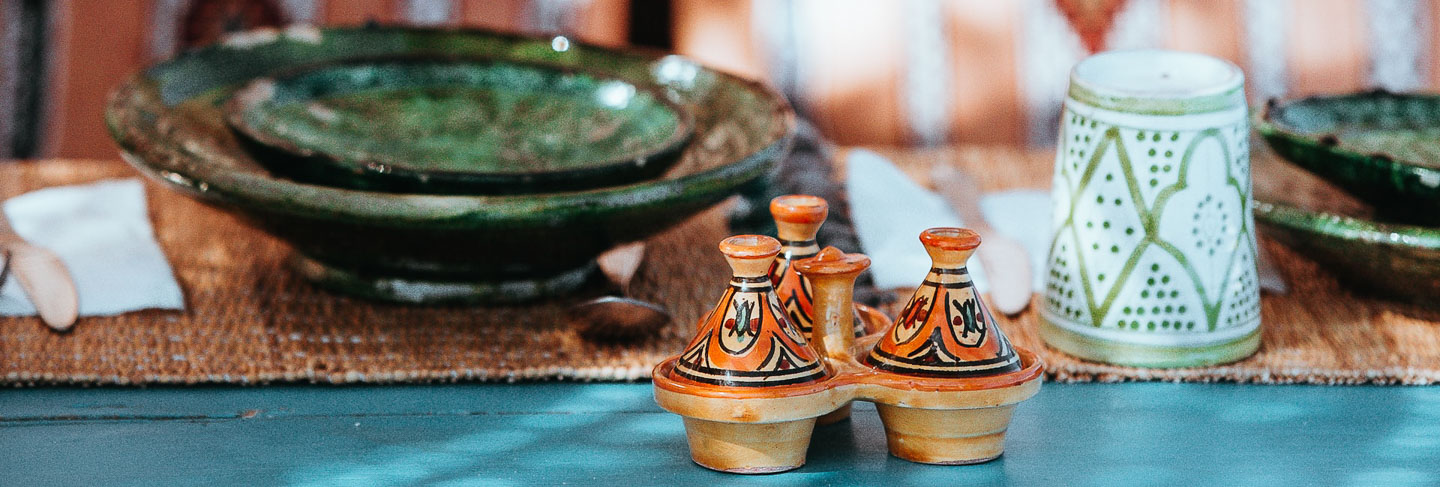Located in the north of Africa on the Mediterranean coast, Morocco represents the legacy of several civilisations. Now divided into 12 regions, the kingdom, long coveted by various countries, represents a true meeting point of cultures.
Ancient History
The great traders, the Phoenicians, were the first people to settle in Morocco. Gradually, the Punic influence spread along the Moroccan coast and the kingdom of Mauretania was born under the reign of King Baga. Rome soon took an interest in these lands. Following various alliances between Rome and Mauretania, and due to the lack of descendants of the Brocchus lineage, the empire installed Prince Juba II on the throne. The kingdom was then annexed to the Roman Empire following the assassination of King Ptolemy by the Emperor Caligula in the year 40.
The Major Dynasties
In the 8th century, the Idrissides became the first Muslim dynasty. It was followed by 3 Berber dynasties, the Almoravids in the 11th century, the Almohads in the 12th century and then the Marinids in the 13th century. Then came the Cherifian dynasties, the Saadians in the 15th century and finally the Alawis in the 16th century, who continue to rule to this day.
The Occupation of France and Spain
The 19th century was marked by wars against France and Spain. The Moroccan army was weakened by its defeat to Spain and the country became in part an international territory. France occupied a number of Moroccan cities with Morocco then coming under French rule between 1912 and 1956. After having deposed Muhammad V in 1951, France brought him back following a popular uprising. He then asked France and Spain to recognise the country's independence. The kingdom officially became independent in 1956 under the reign of Muhammad V and regained control of the northern part of Morocco, except for Ceuta and Melilla, which remained Spanish territories.
Brimming with monuments and ruins, Morocco's heritage is as rich as its history.
From Berber through to traditional and more contemporary styles, Moroccan architecture is a reflection of its history. Berber architecture uses baked earth, a natural but fragile material. The kasbahs, ancient Berber fortresses, are perfect examples of this style, as are the El Badi Palace (Marrakesh), Agadir Lehna (Tata) and the Timguist granary (Agadir). The traditional style is characterised by impressive monuments featuring opulent arches, columns and decorated with mosaics. The sumptuous Bahia Palace (Marrakesh) and the lush, green Secret Garden (Marrakesh) are perfect examples of this. Portuguese influences are also evident in Essaouira.
Capital of the ancient kingdom of Mauretania before being replaced by Fez under the Idrissid dynasty, the city of Volubilis is home to the most important Roman remains in Morocco. This ancient Roman city, sat within a 42-hectare protected site near Meknes, has been a UNESCO World Heritage Site since 1997.
Morocco possesses a unique culture and wonderful traditions that it has managed to preserve while developing a modernity that has helped it to shine on the international scene.
Whether you are in Marrakech, Fez, Tangier or Essaouira, the souks are a must-see feature of Moroccan cities. As you stroll through the picturesque city streets, you will discover countless merchants displaying local crafts: among them ceramics, Berber rugs, metal lamps, leather goods and embroidery. Moroccan traditions are diverse and reflect the history of the kingdom. Not to be missed in Morocco, the souks are bursting with treasures waiting to be bartered for, so don't be afraid to engage in a little bartering!
Wrapped in notes of citrus, fruit and flowers, Morocco is a land infused with all manner of aromas. As you wander among the souks, you will be drawn to the smell of spicy dishes mingling with the sweet flavours of orange blossom. The most emblematic spice of Morocco is undoubtedly saffron, one of the most expensive in the world. Known as red gold, it is derived from crocuses, purple flowers that can be found at the foot of the mountains. Another essential product in the kingdom is argan oil. Extracted from the fruit of the argan tree, its benefits are well known, with it commonly used in hammams and beauty treatments.
Anyone who has visited Morocco will have noticed that the art of hospitality is central to Moroccan culture. Often translated into an invitation to have a mint tea or to join a delicious meal, this warm welcome carries you to the heart of Moroccan culture. It is a hospitality that cannot be refused and that will allow you to better understand the Moroccan way of life!
